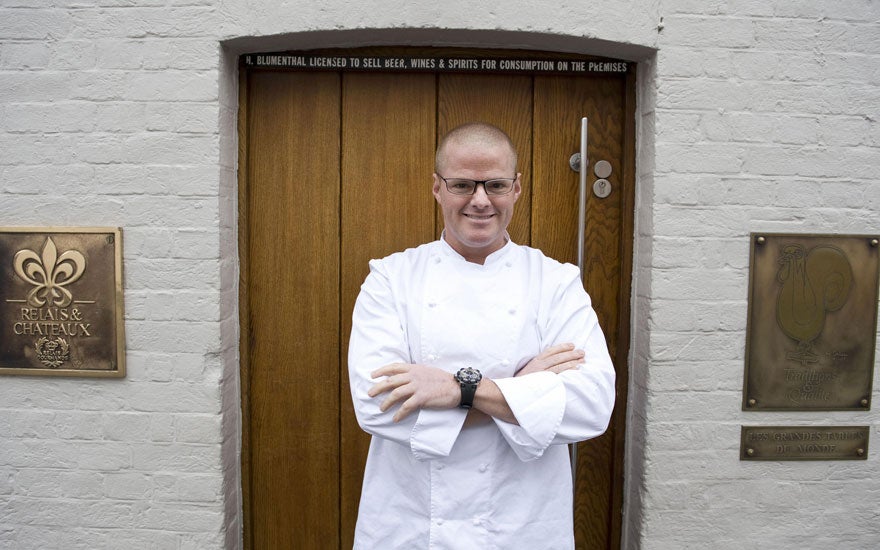Should restaurants charge customers who fail to show up?
It’s an age-old problem that threatens the livelihood of smaller operators. Some are combatting it with prepaid, non-refundable meals – could another option be making the no-shows cough up, asks Emma Henderson

There’s a restaurant near where I used to live in south London that is guaranteed to always be busy. Weekend timeslots are limited to 1.5 hours, bookings are essential – even on a Monday – service is fast and payments are in cash.
To them – an independent, family-run restaurant – bookings are everything. It’s a small, extremely fast-paced, excellent Thai.
Once I left it until the day of the booking to cancel. But before I managed to, the restaurant rang me to confirm the booking. I sheepishly said we didn’t want the table anymore and I was actually shouted at and hung up on. I felt bad. I was a regular. I should have known they’d have turned away many, many eager (and seemingly more reliable) customers because I had booked, but was too lazy to cancel in time.
No-shows are estimated to account for anything between 5 to 20 per cent of the total restaurant covers across the country, while restaurant owners commonly factor in a 10 per cent dropout rate. So why don’t more restaurants demand customers’ credit card details at the time of booking? Being able to impose fines would surely be win-win for restaurants and reduce the let-down rate.
We all know unavoidable things happen. I’m not suggesting there be some large and unaffordable fee but something to prompt people to let the restaurant know they can’t make it. For small, independent places in particular, it can make the difference between a profit and potential closure.

The Clove Club in east London’s Shoreditch uses Tock, the online restaurant ticketing system launched in 2015. Customers – slightly oddly – pay for food and drinks when they book. You can pay for extras when you’re there, but bookings are non-refundable and can only be moved, not cancelled. It’s a bold move but Clove Club doesn’t seem to be putting anyone off, and it's the highest UK entry in the World’s Best 50 Restaurants list, ranked at number 26. If anything, Tock bookings have helped it to reduce waste and costs.
Heston Blumenthal’s three-Michelin-starred restaurant, The Fat Duck, in Bray, Berkshire, doesn’t take bookings lightly either. When booking its “journey” menu you’re faced with an eye-watering prepaid fee of £275-£325 per person. But it cuts out the problem of any potential losses.
The Next restaurant in Chicago has been doing it since 2011 – selling non-refundable tickets starting from $135 (£86) for a set date and time.
But somewhere that is still struggling with this problem is Ireland. In an attempt to curb it, the Restaurants Association of Ireland (RAI) is proposing to take a non-refundable deposit when taking the booking of around €20 (£17.60). Its members are being advised to take card details for tables of four or more and if not enough notice – 24 to 48 hours – is given or the party does not turn up, they’ll be charged. RAI chief executive Adrian Cummins likens it to booking tickets to the cinema or visiting a hotel.
And Cummins is right: no-shows have an undeniable effect on a restaurant’s revenue. So is there any excuse for this behaviour in the modern digital age? An estimated 37 million of us own a smartphone. Keeping track of time is inescapable; it’s on the lock screen of your phone, something we look at around 85 times a day. So I think not.
But as making a booking has become easier – phone, online, email, WhatsApp – cancelling it has somehow become harder.

Perhaps it’s this digital age that allows us to be flakier. Before mobile phones, you’d agree to meet somewhere at X time, at X place, and that was it – it happened. There was no option to message the group WhatsApp and say you’re running 15 minutes late, or can’t make it, last minute. You sorted your life out and crossed rivers and mountains to get there on time and not let anyone down.
So if all restaurants took a card number with a small but worthy fee when taking bookings, perhaps more punters would be inclined to get it together to turn up, or at least bother to cancel with reasonable notice.
In the process this would eliminate a pet hate of mine: restaurants that don't take bookings at all and force potential customers to queue outside in a bid to make it look like the restaurant to go to.
That rather fierce telling-off I received on the phone was enough for me to really think about my reliability. But as we’re talking about people’s livelihoods, a trustworthy fallback plan is worth it – we shouldn’t be so wrapped up in our own business to forget that some people have businesses to run.
Join our commenting forum
Join thought-provoking conversations, follow other Independent readers and see their replies
Comments
Bookmark popover
Removed from bookmarks